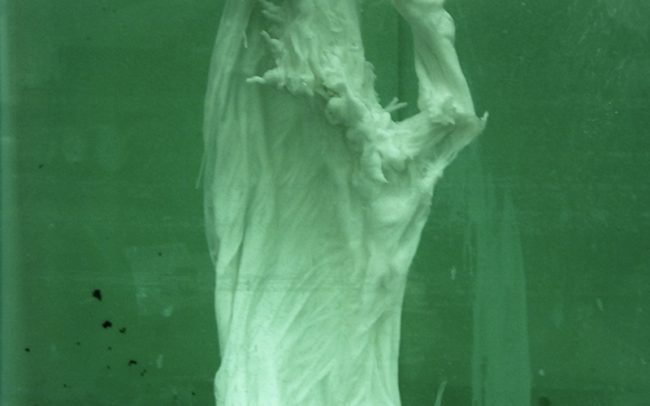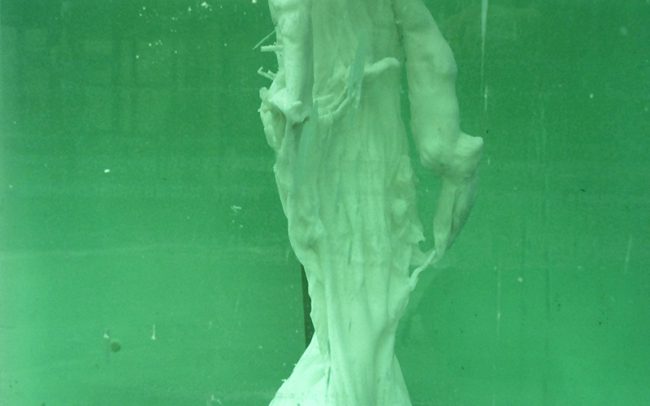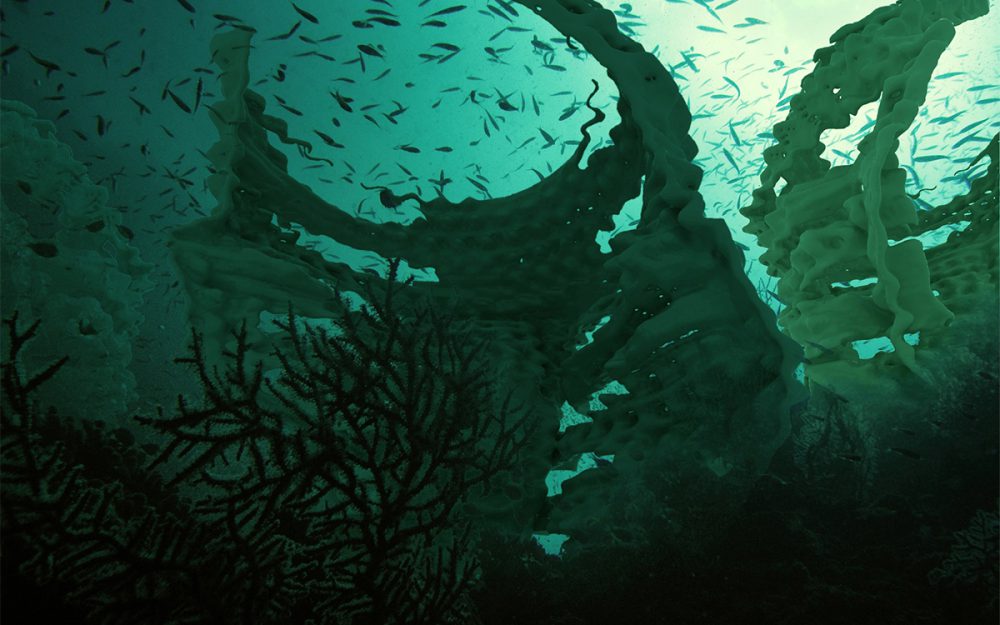using phase-change materials to build structures without the need for casts
Traditional Casting processes rely on the rigidity of a static cast to shape the material, which implies a two-step process: the building of the cast and the pouring of the material into that cast. In order to achieve customisation within this process -as is promised by digital fabrication-, it will imply necessarily the production of a specific cast for each cast element: a process which doesn’t promise efficiency at all. That said, and understanding that a ‘cast’ means constraint (by which the phase-change material will mould itself into the given form), we may assume that material behaviour on its own, is not much involved in the formation process.
Our research project explores new ways of using phase-change materials to build structures without any need for a cast. Our interest lies in understanding the fundamental role that material intelligence needs to play within the formative process. As such, our research has focused primarily on the study of material behaviour, and secondly on the logic of the machine itself as the device that would allow such a process to happen.
This chosen path has led us to a new domain of production: erratic, random, dynamic and systematically emergent. As we see it, if the common approach towards the conception of a system, in Stephen Wolfram’s words, will be to start from whatever behaviour we want to get, then try to design a system that will produce it: the top down logic of a highly controlled system. We will go in the opposite direction. Instead of restricting ourselves to systems whose behaviour we can readily understand and predict as a way to assure that the system will do what we want (Wolfram, p.40), we will explore a bottom up logic of production, one that will allow chance and material performance at each stage of the process.
By studying phase-changing materials, wherein change happens almost instantaneously (through temperature control), we are exploring the use of water as a catalyst for the solidification process to occur, so removing the usual constraints of casting processes. This means a strong negotiation between the control that machinic production offers and the variables involved in the logic of fluid dynamics, behaviour of both material and catalyser. Digital Fabrication, in this sense, will provide a platform of ‘precision’ within the domain of the ‘imprecise’ that we will be dealing with.
As we see it, this process opens a great potential in casting systems. First, by the fact that structures can be produced instantly without need of a cast besides water; secondly, by using material intelligence as a process of free-form finding, being the material itself that computes inside a fluid environment; and third, by exploring a machinic logic that breaks through the usual constrains of gravity and scale common in digital fabrication.
If we can devise a technology by which to produce instant (and easily recyclable) structures in the sea, we might be able to propose not only a highly adaptable system to cope with distinct forms of renewal and change, but to explore the sea itself as a potential environment for inhabitation.













